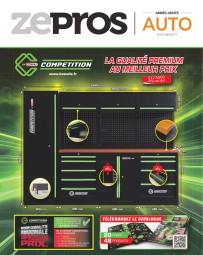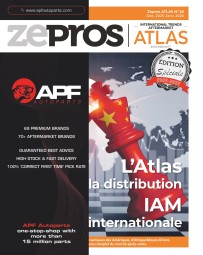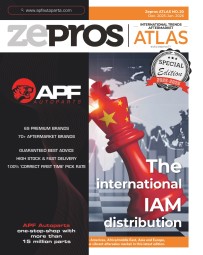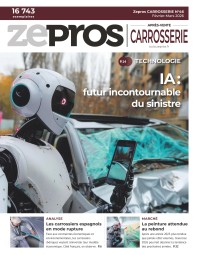
A. Hamilton, LKQ Europe: “Building the structure of a true market leader”
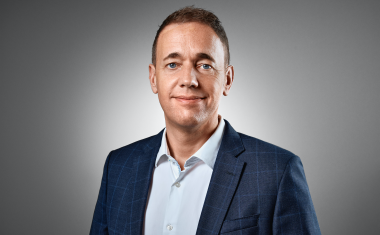
A little more than a decade after arriving in Europe, LKQ is laying the foundations for continued expansion and the development of new services and channels.
Andy Hamilton: We have just concluded our latest three-year strategy. We needed to redefine, optimise and harmonise the LKQ Europe structure, having brought together more than 80 acquisitions since 2011. Streamlining around five big ‘Europe’ regions – including Benelux-France – has been key to this. We have set up centralised European teams in charge of ten support functions. This team interacts with our five regions by setting a consistent standard and sharing best practice and resources, that our regions can tailor to the specific needs of their customers and colleagues. To achieve this, we are transforming and consolidating the back end of the business by standardising tools (including a new ERP), ways of working, and so on. Our standardised processes and tools are up and running in Italy and Switzerland, where they are working well. We are now going to accelerate this consolidation, as less than 10% of our European businesses are aligned. By the end of 2025, we expect the harmonised processes to be used by a third of our companies, and by 2027, three quarters.
A.H.: If we want to expand further geographically and develop new services and channels, we can't just pile up new companies with their own different organisational structures, systems, brands and product portfolios. Consolidation and integration are essential to our continued growth and mean we can deliver a more consistent, high quality experience for our customers and colleagues across the continent.
To support this we have launched five major transformation projects, all of which are complementary to one another. And it’s not just about the systems, but also about the brands, the product portfolio, etc. Over the next four years, we will get to a target operating model that will help us to continue to grow in Europe. So it was absolutely essential.
A. H.: We operate in 18 markets and we are the market leader in Europe. But whereas we are number one in 10 of these markets and somewhere in the top five in others, we are outside the top 10 in some countries, including Poland. Selling to Meko in Poland [editor's note: LKQ holds a 26% stake in the Scandinavian firm] enabled us to combine our businesses [editor's note: consolidated sales of nearly €400m] and earn a place in the top 5... and therefore be more competitive. The same logic applies to Slovenia and Bosnia where, given the relatively small size of the market, it would have been disproportionate to invest our way to becoming market leader. These three divestments in markets where we did not have the necessary scale were therefore strategic.
A. H.: We have doubled our French portfolio over the last three years and are continuing to expand. We have put a lot of investment into France and will continue to do so, because France is a priority market for us. But before we can accelerate further, we need to concentrate on transformation, and in particular on the full deployment of our harmonised processes and our new ERP.
A.H.: In the UK, the top five distributors account for more than half the aftermarket, while the top five in Spain account for around 5%! To gain a significant foothold in such a fragmented market, we would need to acquire an organisation that was already integrated. We’re not there yet, but we are continuing to investigate the Iberian market.
A. H.: We want – and need – to streamline our logistics, to make our central distribution centre in the Netherlands [editor's note: LKQ Fource in Rotterdam] the hub of our logistics in the Benelux countries. In the Netherlands, we have now transferred all our activities to our new hub, which has the capacity and capability to serve both France and Belgium, too. And there are real benefits to our customers in terms of depth of range and availability. That's why we're working with works councils and unions in Belgium to see how we can now optimise our logistics there.
A. H.: Emotive is a separate entity that brings together a number of well-established brands that we have amalgamated through our acquisitions – making them more visible, accessible and connected. We wanted to extend our reach across European markets to distributors who were already customers of these brands, without being either subsidiaries or members of LKQ. Having access to these tier two and tier three brands is particularly strategic given how the parc is continuing to age. In these circumstances, we believe that Emotive has great potential for development. Our first objective is to support independent workshops, which generate our business, by offering them great quality, great value services and products tailored to their different needs.
A. H.: In addition to the workshop concepts that are key for us, we are helping garages to be digitally visible. It's vital for them to increase their visibility and appeal to consumers. The other existential pillar is the ability to integrate new technologies, and that means increasing skills through training and the right equipment. It's worth noting that three quarters of the work independent garages turn down is for lack of tooling and skills to do the job! And the gap is widening all the time. That's why we're investing heavily in training through the LKQ Academy. We now have 360 locations (covering fourteen languages) and have made a commitment to train 24,000 technicians across Europe in hybrid and EV repair by 2028.
A. H. : We are seeing a slower-than-anticipated progression in EV penetration across Europe as a whole, but this masks wide variation, and Northern Europe is ahead. Our partner Meko in Norway (editor's note: 26% EV penetration rate) has found that its business has not been adversely affected by the electrification of the car parc. Braking, steering, chassis, suspension and tyres go through more wear on an EV compared to a vehicle with an internal combustion engine. This generates business. Mechanical repairs offer genuine opportunities and volumes could well increase, while servicing is changing to be more around diagnostics... The key point is that we are already catering for markets with a bigger penetration of EVs, so when other markets are catching up, we'll be ready...
A. H. : We are emerging from a highly inflationary environment, but many companies are still facing pressure on costs. Against this complicated backdrop, I’m pleased that LKQ in Europe posted positive year-on-year growth in the first half of the year [editor's note: +1.5%, with sales estimated at $3.2 billion for the first six months of 2024] and that we are on track with our business plan. Looking ahead, we expect to continue to grow over the next three years... and to outperform the market. We also expect to improve our profitability by 20 to 40 basis points over this period.
